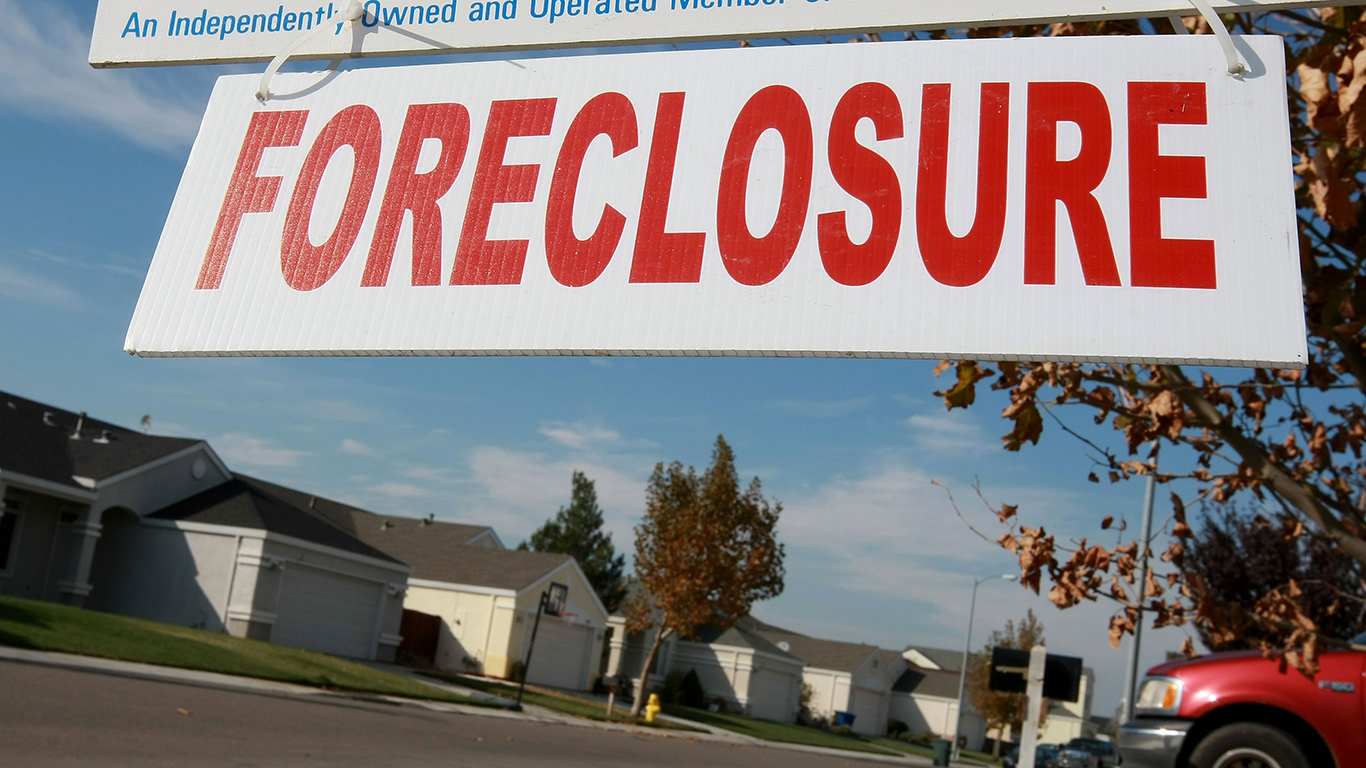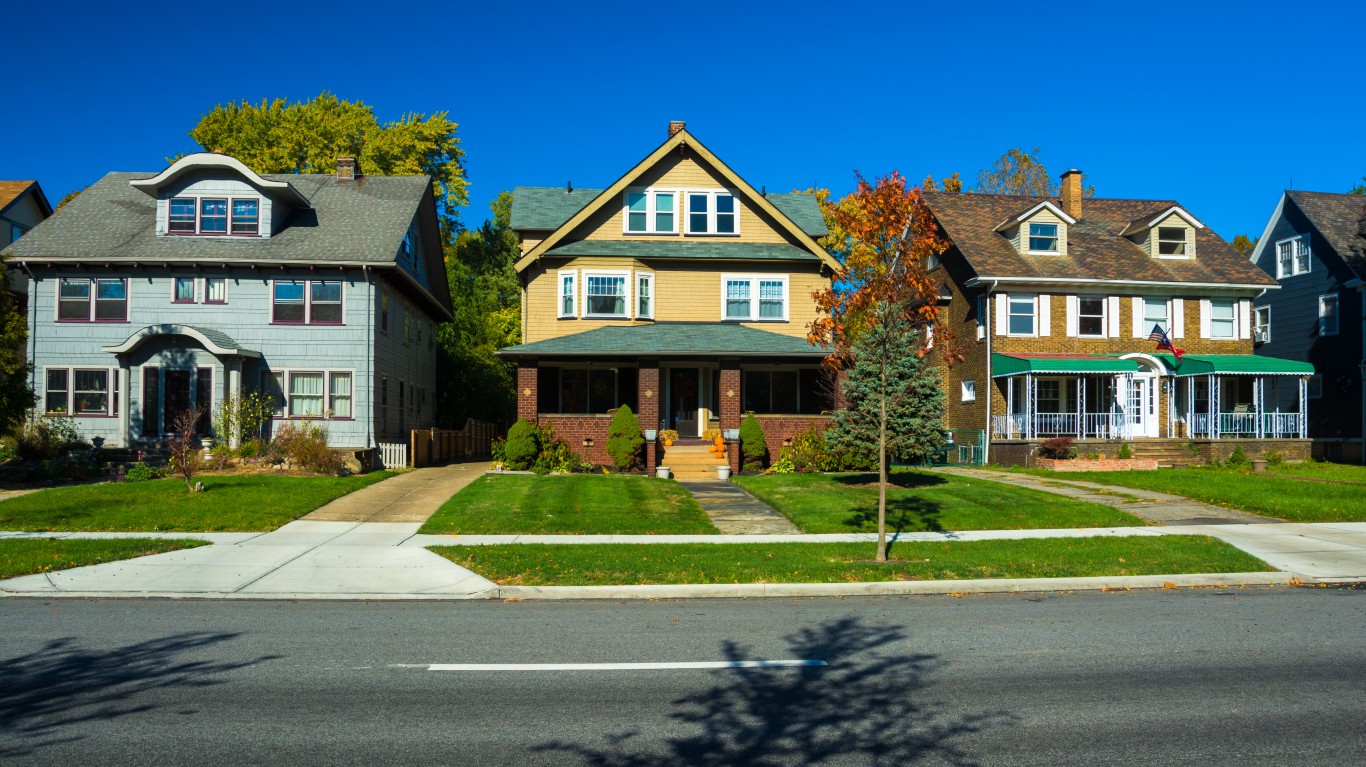
Foreclosures are supposed to be a thing of the past. Tens of thousands of homes fell into foreclosure during the 2008/2009 housing crisis. It took years for home prices to recover. Prices recovered aggressively enough that they rose to records two years ago. Then came 6% mortgage rates, and some homeowners were in trouble again. The recent foreclosure spike is particularly acute in several cities, almost all of which are poor. (These American cities have the most foreclosures.)
[in-text-ad]
Real estate research firm ATTOM recently released its July 2023 U.S. Foreclosure Market Report. A total of 31,877 homes had foreclosed filings (default notices, scheduled auctions or bank repossessions). That is one of every 4,830 housing units in America.
ATTOM also looks at cities. This yardstick includes the numbers for metros with populations of over 200,000. In July, the city hit the hardest by foreclosures was Fayetteville, N.C., where one in every 1,367 housing units had a foreclosure filing. It was followed by Atlantic City, N.J., with 1 in every 1,708 housing units; Columbia, S.C., with one in every 1,747 housing units; Trenton, N.J., with 1 in every 1,870 housing units; and Cleveland, Ohio, with 1 in every 1,957 housing units.
Fayetteville has 208,873 residents, 41% of which are white and 42% Black. The median household income is $48,923, almost $20,000 below the national figure. The poverty rate is 19.1%, which is well above the national number.
The demographic profile of Atlantic City is even worse than Fayetteville’s. It is smaller, with a population of 38,561. Twenty-one percent of the population is white, 33% is Black and 32% is Hispanic. The median household income is an extraordinarily low $29,733. The poverty rate is 37%, one of the highest of any city in the country.
Foreclosure rates in these cities and others of America’s poorest cities will always be higher than the national average. When the cost of food, transportation and energy are taken into account, many of the residents simply have no money left over for housing.
The Average American Has No Idea How Much Money You Can Make Today (Sponsor)
The last few years made people forget how much banks and CD’s can pay. Meanwhile, interest rates have spiked and many can afford to pay you much more, but most are keeping yields low and hoping you won’t notice.
But there is good news. To win qualified customers, some accounts are paying almost 10x the national average! That’s an incredible way to keep your money safe and earn more at the same time. Our top pick for high yield savings accounts includes other benefits as well. You can earn up to 3.80% with a Checking & Savings Account today Sign up and get up to $300 with direct deposit. No account fees. FDIC Insured.
Click here to see how much more you could be earning on your savings today. It takes just a few minutes to open an account to make your money work for you.
Our top pick for high yield savings accounts includes other benefits as well. You can earn up to 4.00% with a Checking & Savings Account from Sofi. Sign up and get up to $300 with direct deposit. No account fees. FDIC Insured.
Thank you for reading! Have some feedback for us?
Contact the 24/7 Wall St. editorial team.




